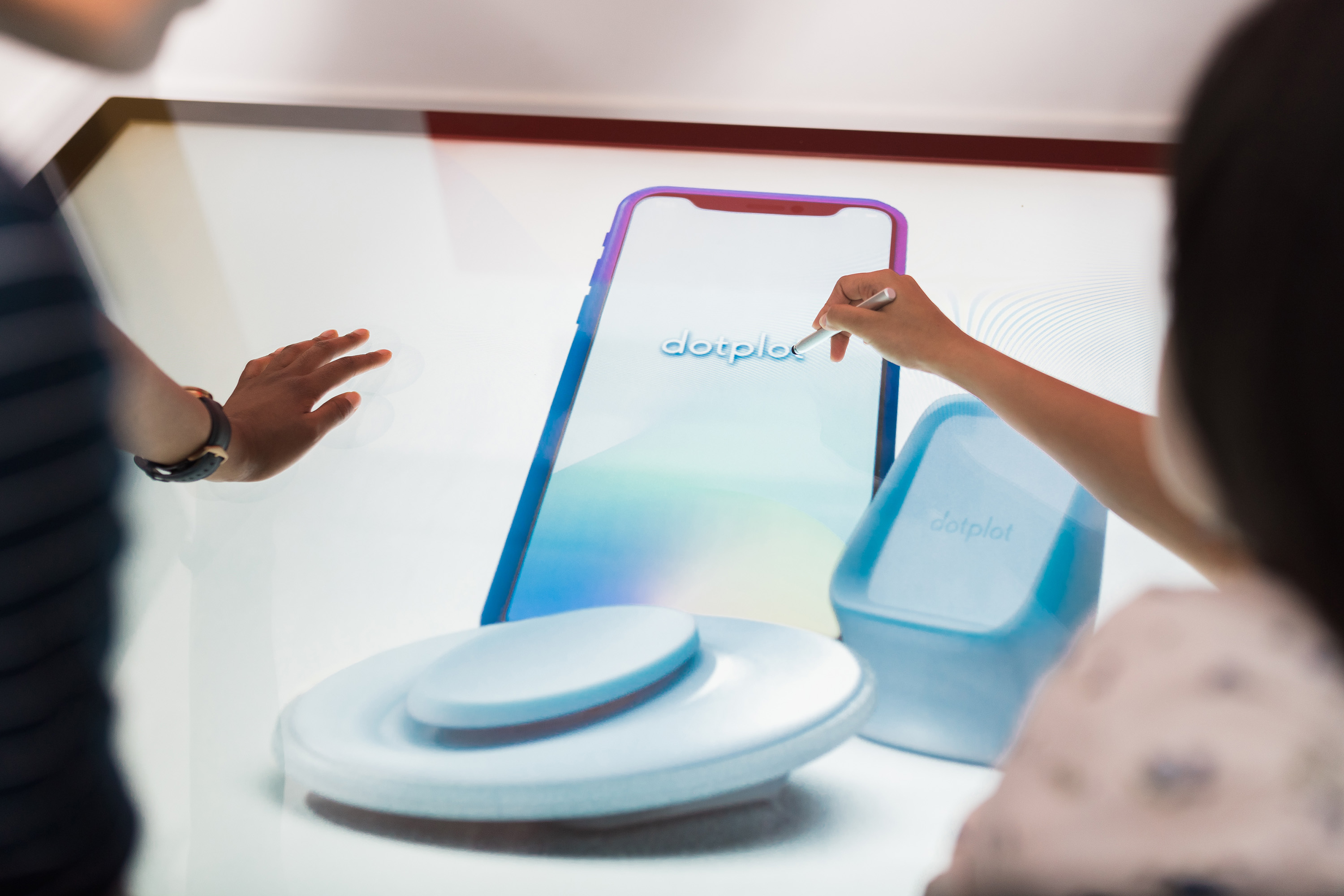 Dotplot’s Shefali Bohra and Debra Babalola want us to take breast cancer screening into our own hands.
Dotplot’s Shefali Bohra and Debra Babalola want us to take breast cancer screening into our own hands.
Words: Kat Brown / Photos: (c)James Tye
We know that breast cancer is a devastating disease, claiming 31 lives in the UK every single day. We now that early detection can make a huge difference – survival rates increase to up to 93 per cent. So we know we need to be checking as often, and as thoroughly, as we can. But what we don’t always know is how to do that effectively.
 Shefali Bohra and Debra Babalola (both MSc Innovation Design Engineering 2022) hope to change that. The two are co-founders of Dotplot, a handheld, at-home breast healthdevice that identifies changes in breast tissue density over time. Paired with an app, it guides users through monthly self-checks and alerts them to abnormal changes.
Shefali Bohra and Debra Babalola (both MSc Innovation Design Engineering 2022) hope to change that. The two are co-founders of Dotplot, a handheld, at-home breast healthdevice that identifies changes in breast tissue density over time. Paired with an app, it guides users through monthly self-checks and alerts them to abnormal changes.
Breast cancer may or may not exhibit any physical changes on the surface of the skin, which is why women are encouraged to perform self-checks on a regular basis. However, current guidance is mostly limited to demonstrations and pamphlets – not the easiest way to explain the difference between normal and abnormal breast tissue. By addressing the confusion and guesswork associated with self-checks, Dotplot hopes to customise guidance and offer objective monitoring.
“The more we researched, the more we realised that there was a huge opportunity to develop something that could revolutionise women’s breast healthcare,” says Babalola. “It’s an area that’s been really underserved, just in industry in general. So we thought, how can we apply our design and engineering skills to actually solve that gap?”
During their Master’s course, the pair won a £30,000 funding prize from the Venture Catalyst Challenge. “The prize enabled us to work on our proof of concept and pay ourselves a salary,” says Bohra. “It motivated us to pursue the project and apply for other grants. In May 2024, Cancer Research UK named us New Startup of the Year, so that was another £15,000, which was great. We were up against some really fantastic startups who were mostly in the diagnostic and therapeutic space, so we didn’t know if this home pre-screening tool was going to resonate. It was a huge honour to win.”
The next step is to carry on developing the product, particularly to investigate how it could support the work of healthcare professionals. “We will be exploring whether the breast self-check reports that Dotplot generates can be of use to GPs and, if so, what kind of information they require from us,” says Babalola. “For example, what would help speed up referral processes, or help GPs make more informed decisions about who to refer?”
developing the product, particularly to investigate how it could support the work of healthcare professionals. “We will be exploring whether the breast self-check reports that Dotplot generates can be of use to GPs and, if so, what kind of information they require from us,” says Babalola. “For example, what would help speed up referral processes, or help GPs make more informed decisions about who to refer?”
They also hope to design their first clinical trial, which is expected to take place in 2025. “We are still some way from establishing how well we can differentiate between cysts, tumours or other complications,” says Bohra.
The aim is to be on the market within the next three to four years – with the right funding. “You can be surprised about how willing people are to help you up,” says Babalola. “Most people recognise that there’s a space for everybody to thrive, so it’s about sharing knowledge and doing whatever we can to address cancer research. From investors, there’s a genuine concern for patients and the population when it comes to cancer research and focus. It’s really inspiring.”
Find out more at dotplot.co